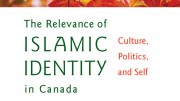The Social Sciences and Humanities Research Council (SSHRC) recently awarded the University of Manitoba $195,657 for the “Embodying empathy” development project, and another $199,636 over three years to find solutions to food insecurity in northern First Nation communities.
“Embodying empathy” project
The purpose of this project is to create a virtual Indian Residential School (IRS) in partnership with an interdisciplinary team of IRS survivors, indigenous communities, archivists, scholars, and technology experts, including Electric Monk Media and Legacy of Hope Foundation.
Consulting survivors and intergenerational survivors is emphasized to create an authentic virtual reality.
“Two primary objectives of the residential school system were to remove and isolate children from the influence of their homes, families, traditions, and cultures, and to assimilate them into the dominant culture,” Prime Minister Stephen Harper explained in a public apology to former students of the residential school system.
To this day, few of the buildings that housed residential schools remain to serve as knowledge centres about the history of forced assimilation. This project aims to re-create residential school exhibits for educational purposes based on the testimony of survivors.
Andrew Woolford, professor of sociology at the U of M, is leading the project along with associate professors from the department of English, film, and theatre, Adam Muller and Struan Sinclair.
Woolford told the Manitoban that the Canadian Museum for Human Rights is creating exhibits that will make the Truth and Reconciliation Commission testimony available to the general public.
One of the outcomes of the “Embodying empathy” project will be to highlight the benefits and pitfalls of creating a virtual IRS, and determining whether virtual reality technology can actually bring audiences closer to the diverse experiences of forced assimilation in residential schools.
Sharing the Feast of Food from the Land in Northern Manitoba
The other research project receiving funding is a partnership between Shirley Thompson of the U of M’s Natural Resource Institute, co-applicants Ataharul Huq Chowdhury of the University of Guelph and Stéphane McLachlan of the University of Manitoba, Frontier School Division, O-Pipon-Na-Piwin Cree Nation, and Manitoba Agriculture, Food and Rural Development.
The research seeks to find solutions to food insecurity and establish food sovereignty in northern First Nations communities.
“It all came out of a survey that we did in 14 communities. So, out of that, we did a lot of analysis around what was working in the communities: what they had, which communities were better off, and why?
“Is it gardening, is it connection to roads, is it connection to public transit? What are the factors that are improving food security?” Thompson told the Manitoban.
“And so this research largely came out of that. And a growing partnership with [O-Pipon-Na-Piwin Cree Nation] over the years.”



